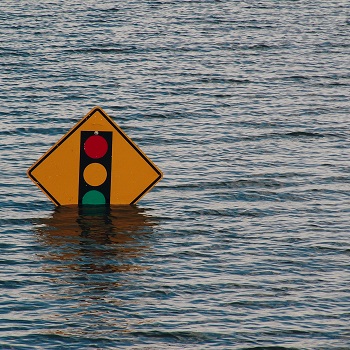Enlargement in Doubt as Ireland Scuppers the Lisbon Treaty
The worst fears of Europe’s leaders have been realised: Ireland’s voters have scuppered the Lisbon Treaty, with 862,415 votes against and 752,451 in favour on a turnout of 53.4 per cent in the Irish referendum. Politicians can complain till the cows come home about small countries and slim majorities. After all, the Irish “no” voters represent maybe one in 300 of the EU’s voting population. But the people have spoken and Ireland cannot ratify. The treaty will not come into effect at the start of 2009.
There will be no quick and easy solution. The vote was surely another demonstration of popular disdain of the political elites, which is widespread across Europe. It was not enough for all the major parties, the business organisations and the trade unions to argue for a “yes” vote. Their leadership was widely rejected.
I see that the Irish Taoiseach Brian Cowen says that this is Europe’s problem. That seems a bit of an understatement, also known as passing the buck. But since nobody can identify particular issues which led to the Irish rejection I suppose Mr Cowen is saying that the Irish government can think of no specific changes which could be made to the treaty which would make it more palatable for a second referendum. There is no appetite in Ireland to repeat the double.
We’re back to the old argument about representative democracy versus the popular vote. The referendum drew in all kinds of extraordinary allegations about the treaty. One poster said it meant that children would all have to be micro-chipped. Some campaigners claimed that abortion would be legalised under the treaty and others that Irish youngsters would be conscripted for a European army.
Yet people’s commonest complaint was that they simply did not understand Lisbon and they refused to vote for something they did not understand. It’s a classic situation where parliament does seem the right place to decide highly complex issues. But it has to be based on the assumption that politicians have the trust of the people. To win the support of the people requires a vision, and there was little sign of that in the Irish campaign.
When French and Dutch voters rejected the Constitutional Treaty in 2005 enormous efforts were made by Sarkozy, Merkel and others to get the reform process back on track. It will be difficult to find the political will to repeat such a massive exercise, especially in a period when public opinion across Europe is increasingly preoccupied with prices, jobs and immigration. Two-speed Europe, referendum by-pass, Irish opt-out: none of them seems to provide an answer.
Most likely is that the treaty will be put to sleep for the time being and with it the next phase of enlargement. Business can continue as usual (the EU has been functioning pretty well since the 2004 enlargement) and efforts will be made to strengthen common positions on global issues like climate change, energy and foreign affairs, but it could be quite a while before there is a president of the European Council and a foreign affairs supremo bestriding the rue Charlemagne between the Commission and the Council.
We can expect the European Council on June 19-20 to call for ratification to continue, but the Czechs have already hinted that they want to suspend their ratification process.
Without the institutional streamlining provided by the Lisbon Treaty we can expect membership for the Balkan countries and Turkey to be seriously delayed and even put in further doubt. The painful challenge of setting a course for the EU in the aftermath of the Irish vote will fall to the French presidency, which takes office on July 1. Although the French will be frantically seeking a solution, putting enlargement on the back burner might not go down so badly in Paris.
Find Out More
-
Why Europe needs a water resilience strategy
February 8, 2024
-
Why the EU can’t risk failure at COP27
November 4, 2022


